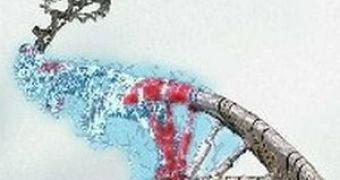A team at University of Iowa has made a study about the role played by the so-called "junk DNA" that represents most of the human genome while genes, DNA segments coding proteins, represent only a small percent.
The team found that some junk DNA is not junk at all, encoding - amongst others - microRNAs, short RNA sequences that do not play any role in protein synthesis, but in tuning protein production; microRNAs could be expressed in a different way than previously known.
The researchers investigated how a set of microRNAs in the human genome is activated or inhibited. In contrast to original assertions, they found that the biochemical pathway expressing microRNAs differs from that decoding RNA to proteins. MicroRNAs activity employs the enzyme called RNA Polymerase III (Pol III) while protein producing RNA necessitates Polymerase II (Pol II). "MicroRNAs are being shown to play roles in cancer and in normal development, so learning how these microRNAs are expressed may give us insight into these critical biological processes," said Glen Borchert, team leader. "Up to now it's been understood that one enzyme controls their expression, and we now show that in some cases it's a completely different one."
Only in 1998 did researchers realize that some "junk" DNA produced small pieces of non protein-coding RNA that could silence genes activity. In 2006, the scientists involved in this study - Andrew Fire and Craig Mello - won Nobel Prize for medicine and physiology. Since then, many studies have revealed that tiny, non-coding RNAs are important in development and disease in still not very clarified ways. "Not so many years ago our understanding was that DNA was transcribed to RNA, which was then translated to protein. Now we know that the levels of control are much more varied and that many RNAs don't make protein, but instead regulate the expression of proteins," explained Beverly Davidson, professor of internal medicine, physiology and biophysics, and neurology. "Non-coding RNA like microRNAs represent a set of refined control switches, and understanding how microRNAs work and how they are themselves controlled is likely to be very important in many areas of biology and medicine."
Till now, more than 450 microRNAs have been discovered in the human genome. Understanding their activity would be useful in many medicine fields.

 14 DAY TRIAL //
14 DAY TRIAL //